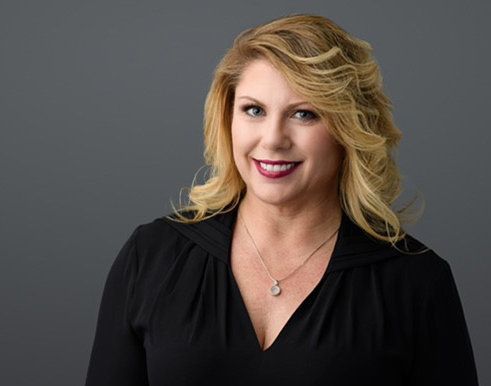Editor’s note: This is an expanded version of an interview that appears in the January/February 2023 issue of FlexPack VOICE®. The printed article can be found online, too, in the digital format of the full magazine.
Each issue, as well as occasionally in a digital exclusive, FlexPack VOICE® hosts a question-and-answer segment that discusses issues with an industry leader. In this segment, we interview Adrianne Tipton, chief technology officer (CTO) at Novolex. She also is co-chair of the Emerging Leadership Council (ELC) of the Flexible Packaging Association (FPA).
FlexPack VOICE®: What do you see as the major challenges facing the industry in 2023, globally and/or domestically?
Adrianne Tipton: Two of the leading challenges in the industry that I would highlight are access to post-consumer recycled (PCR) resin and the increase in sustainable packaging legislation. Access to PCR resin has become an issue as demand is driven by an increase in sustainable packaging. To respond to this challenge, we are leading with solutions. In September, we were honored to be joined by Congressman Greg Pence of Indiana when we announced a $10 million investment expanding capacity at our North Vernon, Indiana, film recycling center. This comes at a time when we are also seeing an increase in polices that mandate the use of PCR, as well as extended producer responsibility programs for packaging that are going to further increase recycling and demand for PCR. By making an investment of this magnitude not only are we able to start addressing the demand for PCR, but we are acknowledging and getting in front of regulatory trends. As a company focused on sustainable packaging, we know we can both meet these challenges and use them to fuel innovation in greater packaging circularity that our customers and consumers want.
FPV: Sustainability often comes up when answering that question, so what is the industry doing well and where does it need to do better in this area? What about your company?
AT: The industry has room to improve when it comes to communicating that packaging is sustainable. One of the best ways to communicate and demonstrate that value is by making and placing packaging that is more circular in the hands of consumers. When innovative packaging reaches a consumer that has recycled content in it or is designed and labeled to be recycled or composted—and consumers are able to recycle or compost it—that is a powerful message. Four years ago, we also started publishing our annual sustainability report where some of the key metrics are how much recycled content we are using and what percentage of our portfolio is circular. Industry often focuses on marketing campaigns and advertising as a communications solution, but it’s very likely that the strongest way for us to communicate is by delivering on composting, recycling, and recycled content in packaging.
FPV: Issues with supply chains and raw materials are sometimes brought up, too, especially shortages for aluminum. Thoughts on those concerns?
AT: As with many packaging companies, supply chains are a daily focus area for us. In recent years, we have seen a cascade of once-in-a-lifetime supply chain disruptions such as the impacts of COVID-19, the Texas freeze, the impact of the war in Ukraine on oil and gas supplies, and others. We work with our value chain partners to learn from these events and take a fresh look at all of the materials we use to identify and manage these new risk scenarios. For example, the recently proposed aluminum foil tariffs are one supply chain issue we are partnering with FPA to try to avoid. We understand that some industries rely on tariffs to protect domestic manufacturing from foreign predatory pricing. But, in this case, the tariff could be so broad it will apply to gauges, which have no domestic industry or supplier. Ironically, it could quickly become a tariff that damages U.S.-based manufacturers that rely on these imports, rather than protect a domestic industry that doesn’t even exist. FPA’s coalition and work to oppose tariffs on ultra-thin gauge foil is a great example of leadership and an opportunity to avoid yet another supply chain disruption.
FPV: Generally, how do you see government regulations as they pertain to the industry? What should change? What would you like to see from federal spending on infrastructure when it comes to recycling?
AT: Regulations can often be a double-edged sword. While well intentioned, we often see proposals that set unrealistic targets—both PCR and end-of-life targets—drafted by staffers who don’t have a background in our industry. On the other hand, well-written regulation can help bridge gaps in society where industry can’t create solutions such as in services like recycling. Novolex, alongside FPA, is committed to meeting with and educating legislative members about how to better structure sustainable packaging laws so they succeed and help industry thrive. We do want to see well-crafted legislation that helps address the need for a better recycling infrastructure, and this would be a great application for federal infrastructure funding, especially when you consider that most recycling systems often cross state lines.
